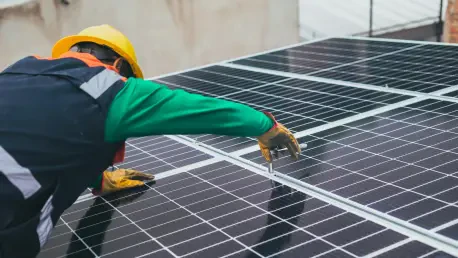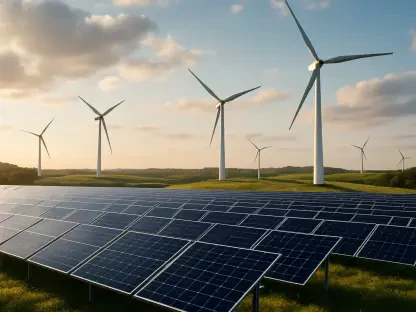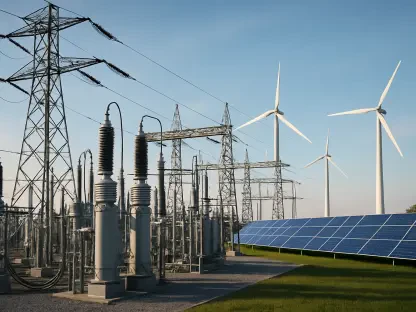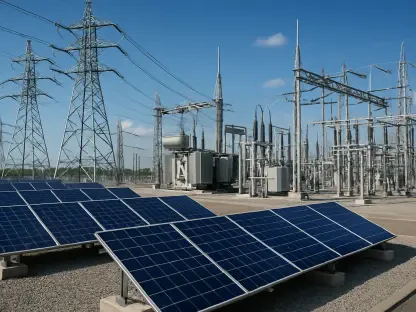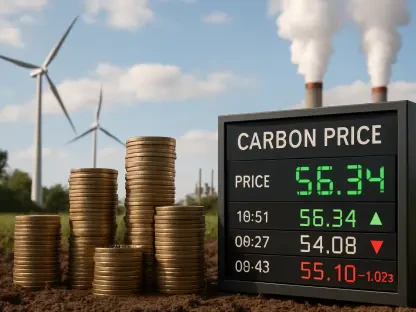The GOP’s budget proposal introduces a polarizing legislative change aimed at dismantling clean energy subsidies, which are integral to the U.S. energy landscape. This strategic move targets significant cost savings but raises concerns about economic repercussions within the solar and storage sectors. With a focus on understanding the proposal’s broader financial impact, this market analysis examines industry trends and forecasts potential outcomes against the backdrop of ongoing political and economic discussions.
Contextualizing Clean Energy Incentives’ Rise and Potential Decline
Clean energy incentives, rooted in initiatives like the Inflation Reduction Act (IRA), have catalyzed rapid growth in the U.S. solar and storage markets. These policies have significantly reduced infrastructural costs, driven technological advancements, and fostered job creation nationwide. However, the GOP’s push to roll back these subsidies raises questions about the future integrity of these achievements. This proposal explores the legislative intent and the possible reshaping of clean energy’s role within the broader energy policy framework.
Dissecting Market Trends and Policy Impact
Employment and Investment Analysis
The potential impact of the GOP rollback on jobs and investments is staggering. According to industry reports, the market stands to lose nearly 300,000 jobs, coupled with a decrease of over $220 billion in investments projected through 2030. Such a shift challenges states heavily reliant on renewable sectors, unraveling economic stability. Grappling with this transition becomes crucial, as fiscal conservatism may test loyalty to long-term sectoral growth and labor market vitality.
Economic Stability and Future Opportunities
Policy changes pose economic risks yet present openings for reimagining energy strategies. Examining other energy markets reveals that diversifying sources can potentially offset immediate losses while stimulating innovation. Despite this, concerns about national competitiveness—particularly in industries like artificial intelligence powered by stable energy—highlight the delicate balance policymakers must maintain. Strategically navigating these shifts becomes imperative for sustained economic fortitude.
Exploring Regional Dynamics and Market Shifts
The regional impact of the proposed rollback is marked by disparities, particularly affecting conservative-leaning states. As these local economies face potential upheavals, it prompts an exploration of clean energy technology innovations and adaptation. These market dynamics and expert analyses highlight the variability in resilience across regions, debunking misconceptions about the industry’s fortitude, and emphasizing nuanced responses to policy changes.
Outlook and Strategic Perspectives
Technological innovation in clean energy holds promising avenues for future growth, emphasizing the importance of efficient storage solutions and regulatory advancements. Industry experts anticipate significant implications from these developments, potentially reshaping economic landscapes. An informed approach, balancing sustainability with innovation, remains central to capitalizing on these trends within an ever-evolving market.
Strategic Pathways Forward
Reflecting on this market analysis, stakeholders face critical decisions in adapting to potential policy shifts. Businesses should consider diversifying investments and fostering regional collaborations, leveraging insights to mitigate risks effectively. Ensuring balanced policy initiatives that nurture job security alongside innovation will be crucial. Embracing strategic actions in anticipation of changes allows stakeholders to unlock opportunities amid energy sector transformations.
